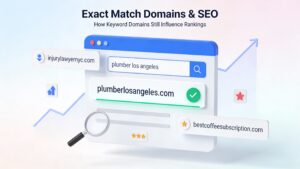Table of Contents
ToggleDitch the SEO Checklist: Why a Systemic Approach Trumps Generic Tasks
For years, SEO checklists have been a staple for businesses and marketers looking to improve their search engine rankings. From “20-point on-page SEO audits” to “the ultimate local SEO checklist,” these resources promise a straightforward path to success. However, relying solely on a checklist for your SEO strategy is a fundamentally flawed approach.
The truth is, effective SEO isn’t about ticking boxes; it’s about understanding and engaging with a complex, ever-evolving system. Drawing insights from industry experts on Reddit’s r/seo and the philosophy advocated by primaryposition.com, let’s explore why it’s time to ditch the checklist mentality and embrace a more dynamic approach.
The Problem with One-Size-Fits-All: Lack of Adaptability
One of the most significant drawbacks of SEO checklists is their inherent assumption that what works for one website will work for another. This couldn’t be further from the truth.
Your Website’s Unique “DNA”
Every website has its own unique characteristics – its age, backlink profile, content quality, brand authority, and target audience. A site with years of accumulated authority and a strong backlink profile will benefit from vastly different SEO actions than a brand new domain trying to establish itself. As experts aptly puts it, a checklist only works if a site’s “DNA matches that of a checklists built for its topical authority.” What helps a well-established e-commerce giant might be a complete waste of time for a local service provider, and vice-versa.
Misplaced Focus: Tasks Over Strategic Outcomes
Checklists can inadvertently shift your focus from meaningful results to mere task completion. This can be a dangerous trap, leading to busywork rather than impactful gains.
The Illusion of Progress
When you’re working through a checklist, there’s a natural tendency to feel productive simply by marking off items. This “completion bias” can create a false sense of momentum. You might complete all 50 items on your “ultimate SEO checklist,” yet see no tangible improvement in your rankings, organic traffic, or conversions. This is because the checklist encourages a focus on doing rather than on achieving.
Absence of Prioritization and Clear Goals
Generic checklists often present a long list of actions without any guidance on which tasks are most critical for your specific situation. This leads to a nebulous set of actions, where every item is treated as equally important. Without clear prioritization tied to your business objectives, you risk expending valuable time and resources on tasks that yield minimal returns, failing to move the needle on key performance indicators.
The Ever-Changing Landscape: Outdated and Insufficient
The world of SEO is anything but static. What was a best practice last year might be irrelevant or even detrimental today.
Rapid Algorithmic Shifts
Search engine algorithms, particularly Google’s, are constantly updated. What was considered a crucial ranking factor five years ago might now be a minor signal or completely obsolete. An SEO checklist, by its very nature, struggles to keep pace with these rapid changes. Relying on an outdated checklist means you could be implementing strategies that no longer work or, worse, are actively penalized.
Measuring Presence, Not Effectiveness
Many checklist items focus on the presence of an element rather than its effectiveness. For example, a checklist might tell you to “add a meta description.” You can tick that box. However, the checklist won’t tell you if that meta description is compelling, accurately reflects your page’s content, encourages clicks, or is even being used by Google. Automated dashboards can validate that an element exists, but they cannot assess its quality or impact on user experience and search performance.
Embracing the System: The Path to Sustainable SEO
Instead of a rigid checklist, think of SEO as a dynamic system. This approach is about continuous analysis, adaptation, and strategic execution tailored to your specific goals.
Building Authority and Trust
Successful SEO is about systematically building authority and trust with search engines and, most importantly, with users. This involves:
- Deep Understanding: Knowing your audience, competitors, and the intricacies of your industry.
- Data-Driven Decisions: Constantly analyzing performance data, user behavior, and search trends to inform your strategy.
- Iterative Optimization: Viewing SEO as an ongoing process of testing, learning, and refining, rather than a one-time project.
An effective SEO strategy requires a holistic view, where every action is a piece of a larger puzzle designed to achieve specific business outcomes. It’s a marathon, not a sprint, and certainly not a list of chores.
So, next time you’re tempted to reach for an SEO checklist, remember that true success lies in understanding your unique context and adopting a flexible, systemic approach to search engine optimization. Your website will thank you for it!





